Anxiety affects us all. From small worries about social interactions to full-on panic attacks, anxiety can get in the way of us truly living our lives. The good news: nature has proven to relieve many mental health symptoms like anxiety. I’ve learned firsthand that gardening for anxiety is something everyone can do, no matter your experience or space.
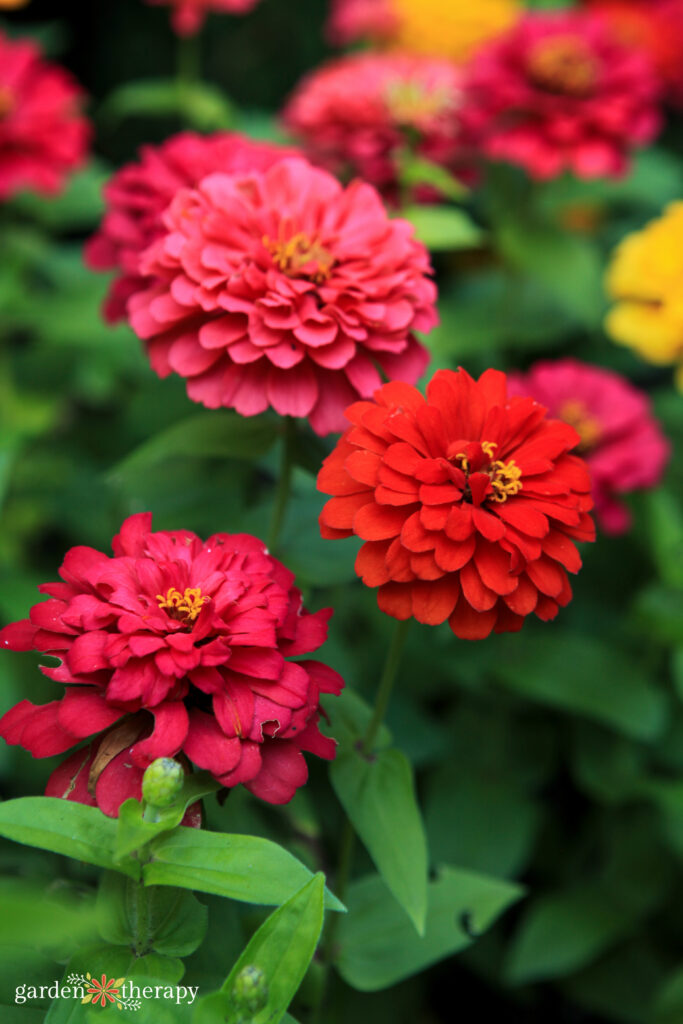
Most people experience some anxiety. The word is so common that sometimes folks misuse it. They could say they are anxious to get into a concert, but they really mean eager. That’s not what I’m talking about. It’s more the things that cause us worry, sleepless nights, and stress.
From mild everyday experiences to panic disorders, anxiety has likely affected you or someone you love.
Anxiety has a purpose, which is to keep us safe. It can also be overused and start to affect our daily lives. It can look like worried thoughts, feeling tense and stressed, and even physical symptoms such as nail picking or jaw clenching.
In worse cases, it can affect our ability to interact with the world and our loved ones and even make us feel like we are dying. It can be quite scary when it’s severe. I’ve been there.
I have had some traumatic events in my life that caused my nervous system to fire and my anxiety to grow bigger than I could manage. So, I went to therapy for a long time which helped a lot. I also learned that there was a large portion of that anxiety that was connected to my hormones. Regulating those helped me tremendously to get to a place where anxiety doesn’t negatively affect my life.
It was gardening that I turned to for regulation. Over the years, it has been proven that it can help immensely in lessening anxiety symptoms. Gardening can give us a sense of purpose, establish a routine, and provide a point of joy in our lives.
It makes logical sense, of course, but the science is there too. Gardening for mental health has long been a proven method to help treat depression and anxiety.
Jump ahead to…
- How Gardening Helped My Mental Health
- Gardening and Anxiety
- Is Gardening Good for Mental Health? The Science SAYS YES.
- Physical Activity
- Reconnecting With Our Roots
- Practicing Mindfulness
- Gardening Community
- More Posts to Read
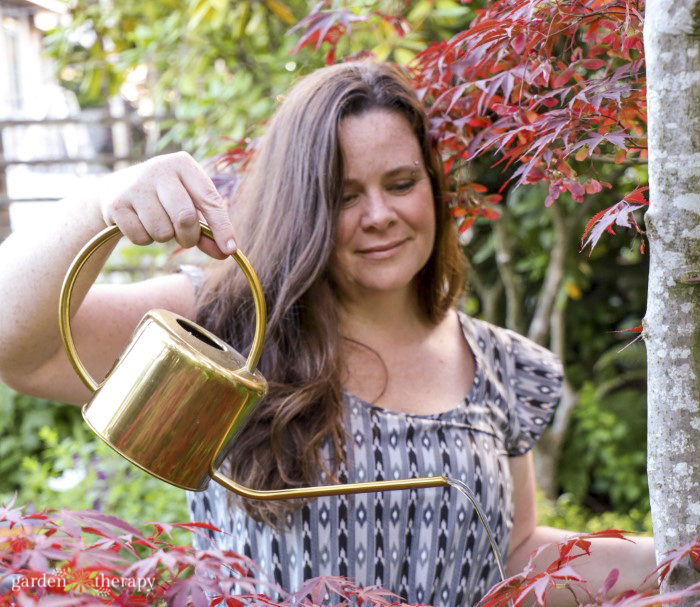
How Gardening Helped My Mental Health
Nature has saved me more times than I can count in my life. It first began in my mid-twenties when I was diagnosed with clinical depression. I had a hard childhood and didn’t realize how much I was in survival mode until a friend suggested I needed help.
At her suggestion, I saw my family doctor, who then gave me anti-depressants, the Feeling Good Handbook, and instructions to get into nature daily. The combination helped, but that last one always stuck with me.
Later in my life, I became severely disabled overnight. One moment I was fine; the next, I was confined to bed for years. I had to stop working, was isolated, and was in constant pain. To keep the depression at bay, I returned to the advice I got in my twenties.
Get outside.
That’s how I started my gardening journey. First, it started with just sitting outside, then with five minutes learning to garden, and those five minutes a day slowly turned into me getting my life back.
During the years that I was rehabilitating, I recognized that I had a lot of anxiety swirling around inside of me. I was, again, in a difficult family situation, and that everyday stress was affecting my mental health. I managed it through gardening and spending time being kind to myself.
It wasn’t until I had a child that I realized that there was a physiological component to my anxiety.
I regularly had episodes after childbirth where my heart would start racing, and I would feel like I couldn’t catch my breath. It came on at the most unusual times, though. When I would tell my doctors, they asked what I was doing that was causing me stress. It was usually around 3 PM and 11 PM when I was resting at my computer or in bed sleeping. Strange.
It wasn’t until I had to go for dental surgery that I realized what was happening. And not happening.
The night before surgery, I was quite worried because I really do not like going to the dentist. I had a panic attack that night which felt completely different than the 3 PM/11 PM episodes that my doctors called panic attacks.
I explained this to my Traditional Chinese Medicine Doctor, who said it sounded hormonal. So, I changed my diet dramatically to cut out sugar, and it made a huge difference. Once the hormones were regulated, I felt the anxiety melt away as I puttered in the garden.
I’m no stranger to the healing powers of the garden and nature. I began Garden Therapy to connect with others going through the same thing and see if the garden could help them too. I hope that through sharing these stories, there is a path to peace for anyone who is struggling.
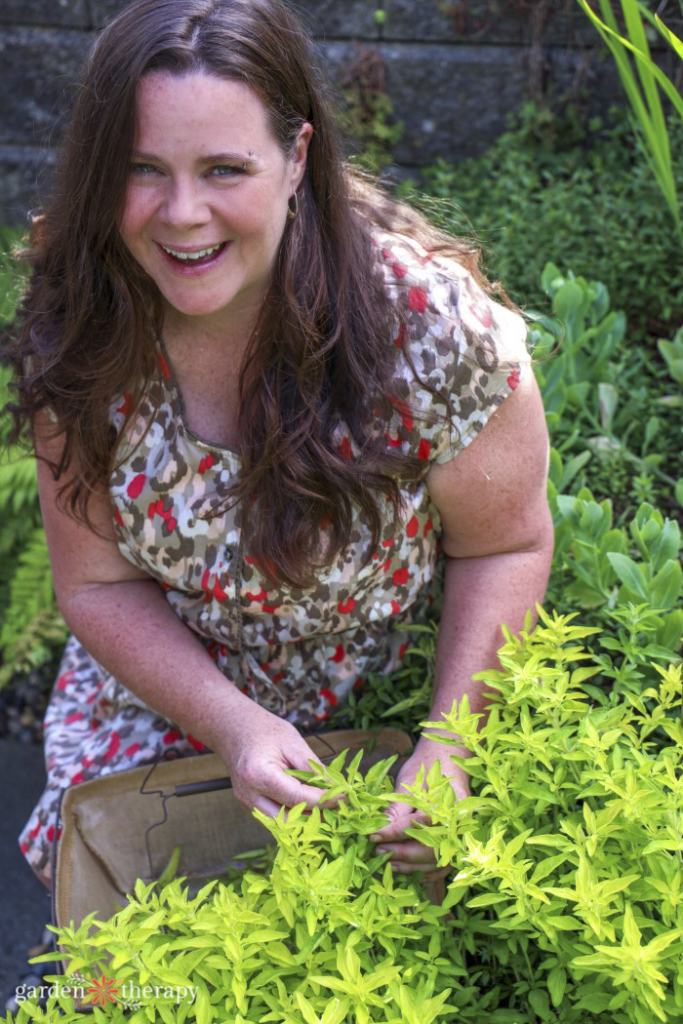
Gardening and Anxiety
Anxiety is a very real and powerful emotion for many of us, including myself. It’s very common for those diagnosed with depression to be diagnosed with anxiety as well (or the other way around). Nearly one-half of people with depression also have anxiety.
Using the US as an example, Generalized Anxiety Disorder affects 3.1% of the population, Panic Disorders affect 2.7%, and Social Anxiety Disorders affect 7.1%.
While anxiety is common, it should be taken seriously. Medications can help, but they can be expensive and have side effects for many people. This is why it’s important also to seek out other methods of treatment in addition to medication.
Science has proven that gardening can be a helpful tool for managing anxiety. Here’s exactly how gardening can help with anxiety.
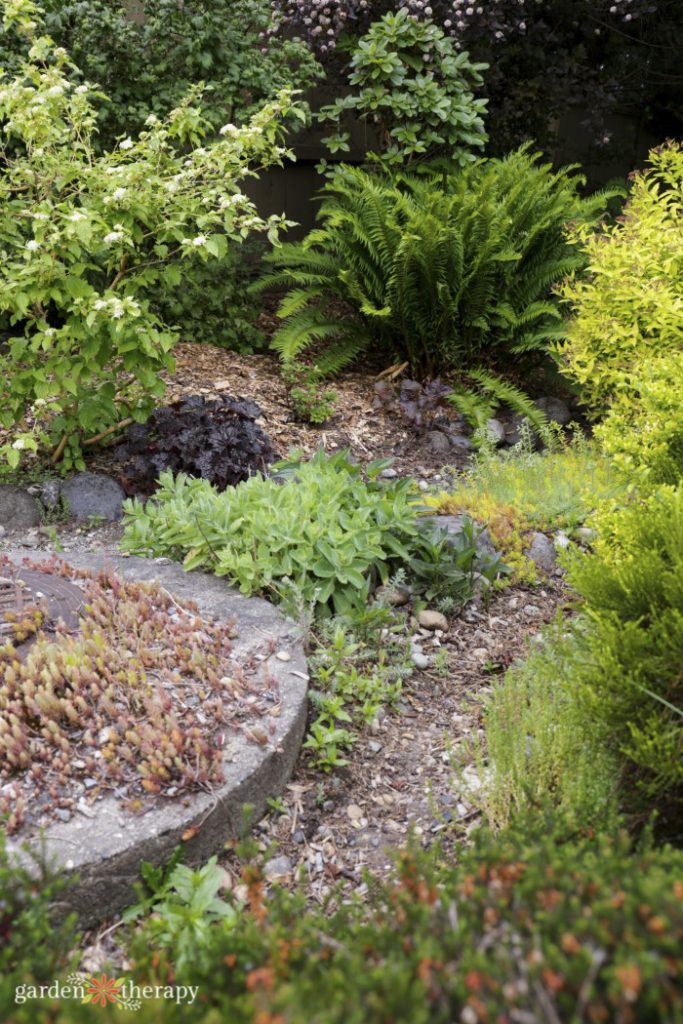
Is Gardening Good for Mental Health? The Science SAYS YES.
I’ve talked before about the benefits of gardening and treating depression, and it’s long been proven that just being close to nature can greatly increase mental health. Just by observing nature or images of it, you can increase your mood and mental health.
The difference between growing a real green hedge versus building a drab grey fence can mean the world.
Having a higher amount of green spaces is associated with less depression, stress, and anxiety.
And it’s not just long-time gardeners! The University of Florida conducted a study among healthy women and had them attend twice-weekly gardening lessons. The women experienced reduced stress, anxiety, and sadness, without having ever gardened before.
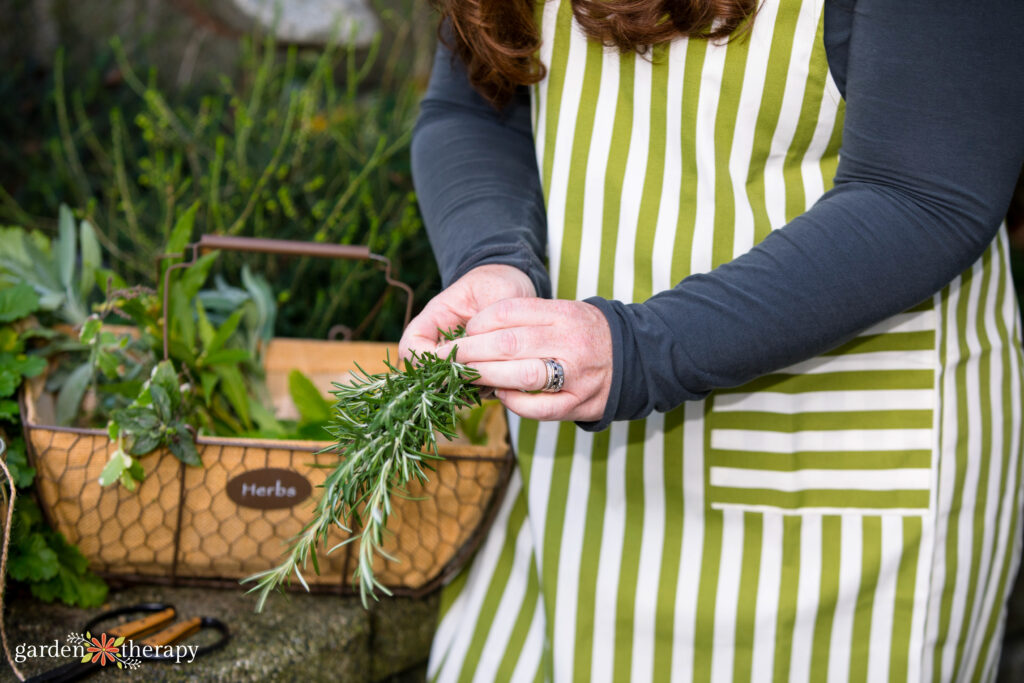
Physical Activity
Most people don’t understand how much a workout gardening can be. From the more intense stuff like pushing a lawn mower and pruning to the stretch-inducing harvesting or weed pulling, gardening is quite an aerobic activity.
Gardening can help to restore dexterity and strength. Mild exercise has been proven to help reduce symptoms of anxiety and depression.
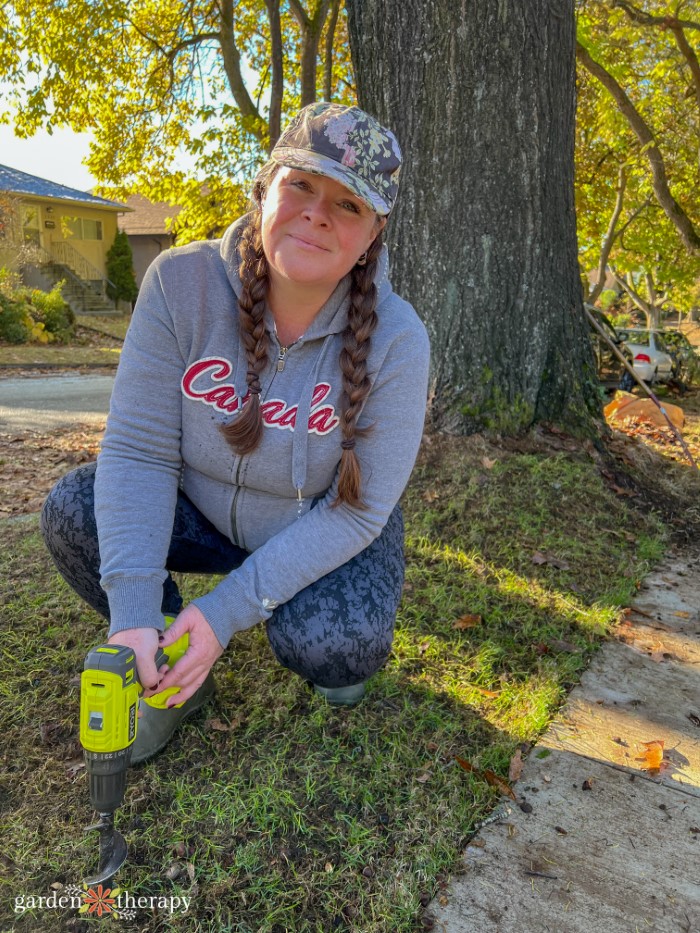
Reconnecting With Our Roots
Some researchers even hypothesize that living in cities has changed us as we’ve become disconnected from stress-reducing microbes found in nature. Thankfully, these can still be found…right in the garden!
We’re also innately attracted to plants, relying on them for food, shelter, and survival. Really, it’s human nature to want to be surrounded by greenery.
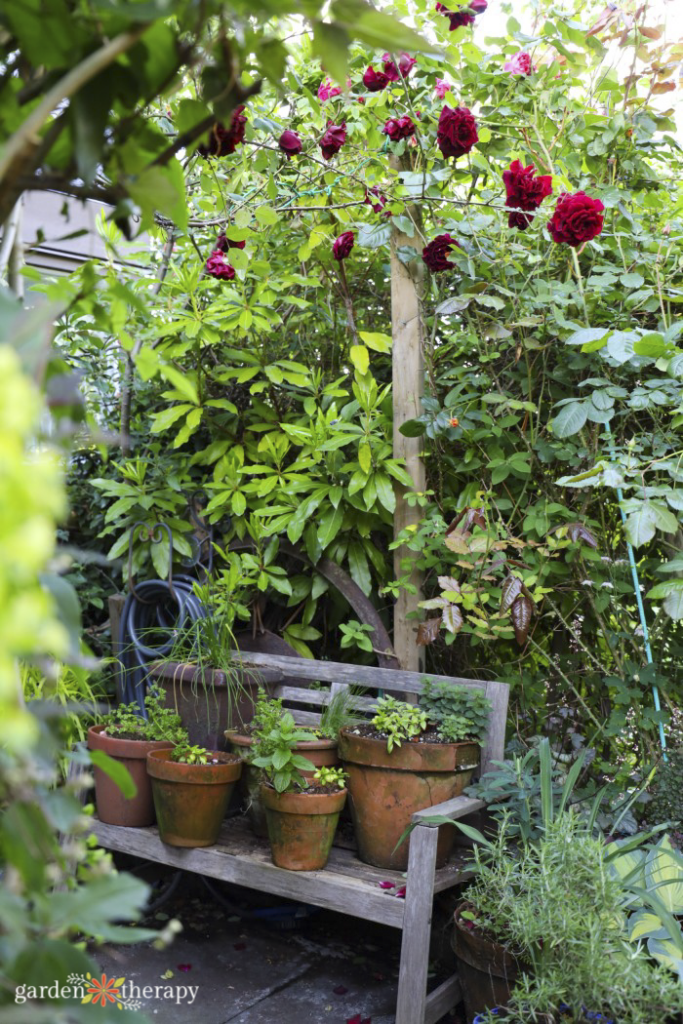
Practicing Mindfulness
Mindfulness is when you’re aware of the moment. It’s become very popular in the past few decades, thanks to the rise of meditation and apps designed to guide you through these practices.
Mindfulness has been shown to reduce anxiety, including generalized anxiety disorder and panic disorder.
Mindfulness occurs naturally in the garden. We feel the cold, soft dirt on our fingers. The sound of the sprinkler watering while we tug at weeds beneath us. We’re becoming in tune with nature and our own bodies.
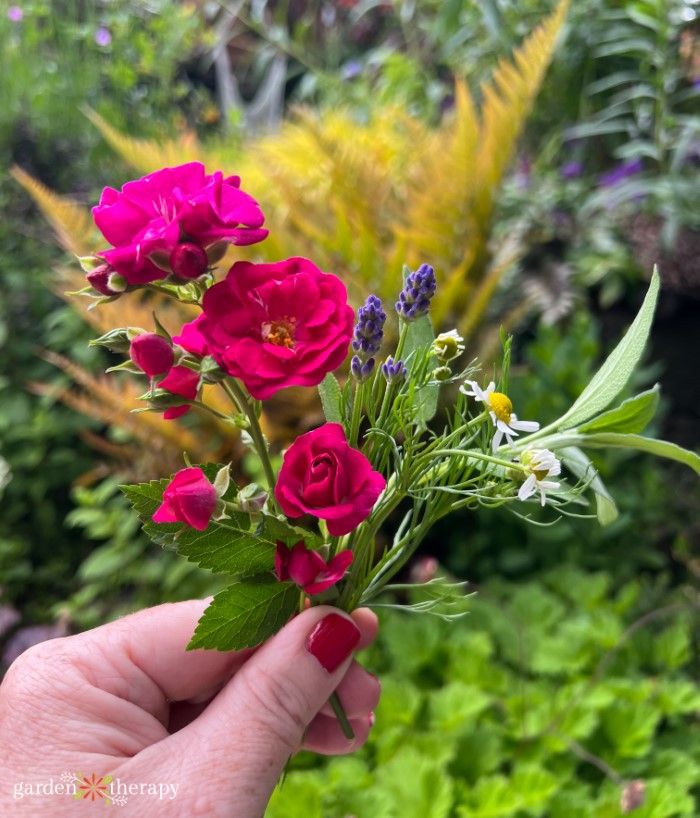
Gardening Community
Finding a gardening community can be a great help for those who feel anxious in social situations. Reaching out to people who you feel comfortable with, and who have something in common, will make it easier to be around others.
You’re always welcome in your garden. It’s a good way to get out of the house and get busy doing something while still feeling safe and comfortable in your own space.
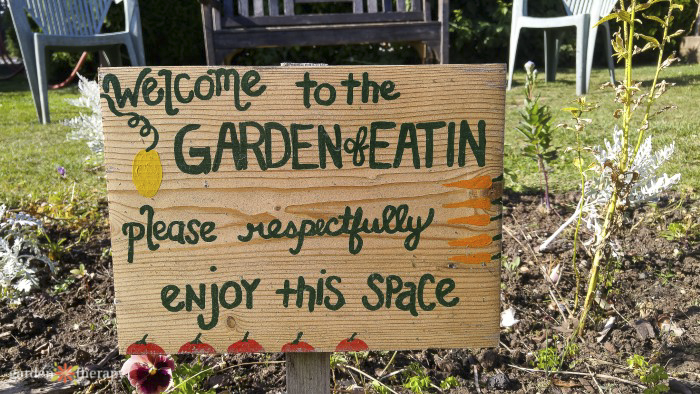
If you or someone you love is experiencing anxiety or depression symptoms, I highly encourage you to contact an experienced healthcare professional for help. And never forget that mother nature is also some of the best medicine.

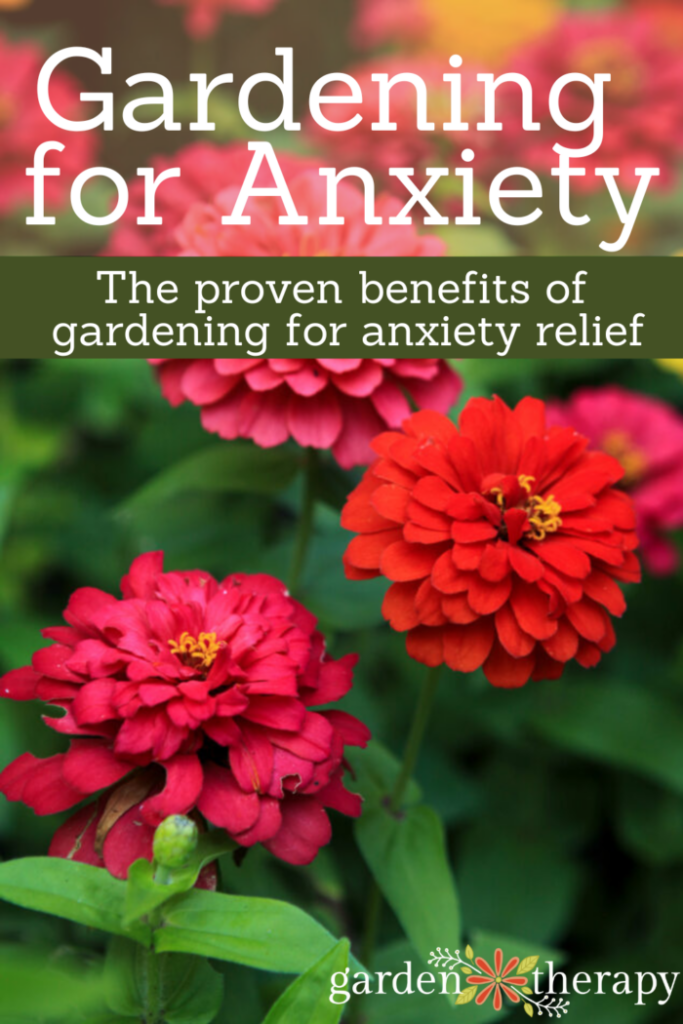
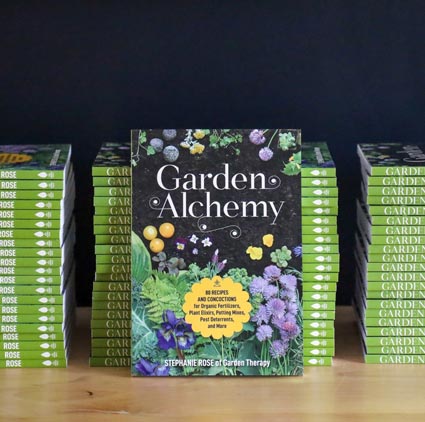
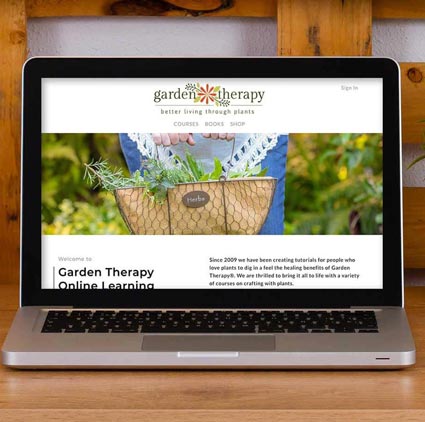

Thank you for this lovely post. It’s super helpful for those of us who experience anxiety and depression.
My pleasure, Corrie. Hugs!
Today reading your post I was made aware of just how depressed I have been. I have done some of your suggestions. They work especially getting out even 5 min a day. It has been pretty dreary here in colorado. Looking forward to getting out in sunshine again. Thank you. Your posts do encourage us
Oh, Linda, thank you so much for sharing. Sending hugs to you!
This such a boost, I talk to myself often repeating all of this messages. Stay in the joy of what gardening prrovides